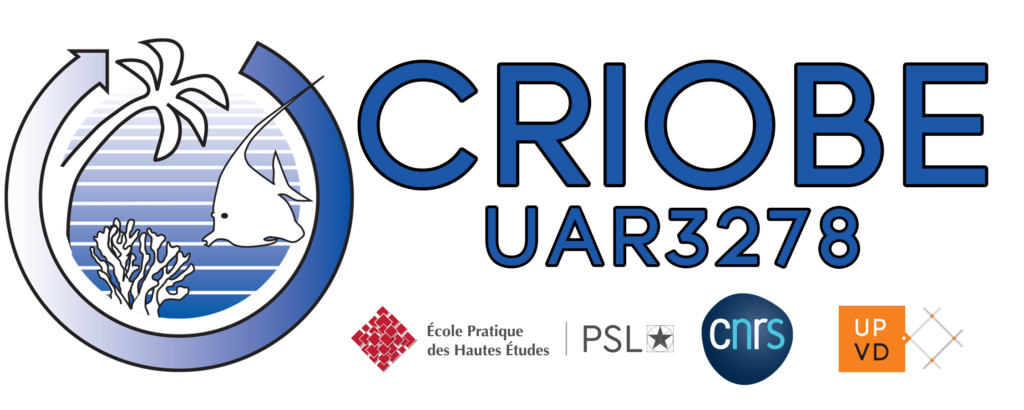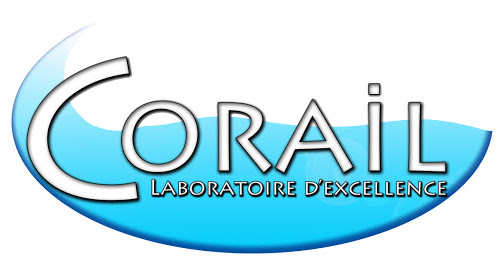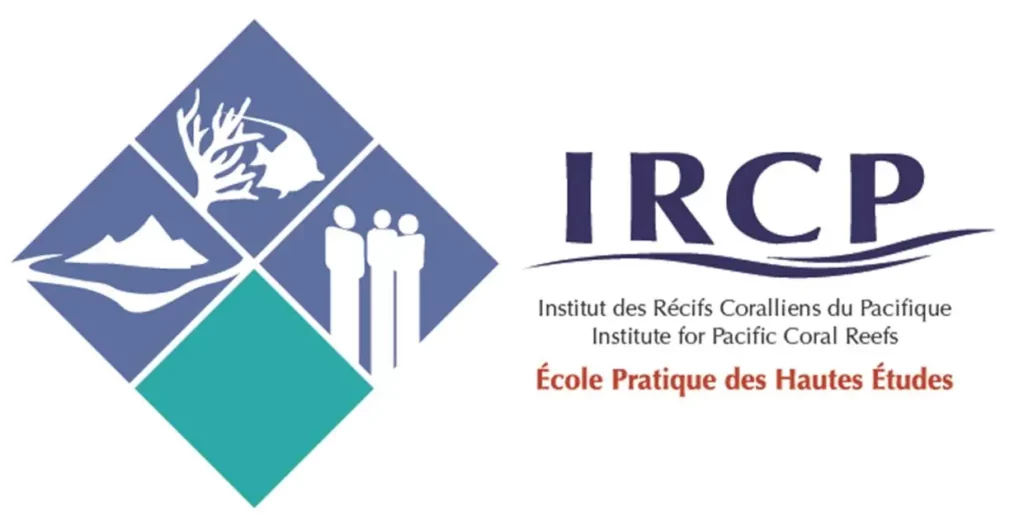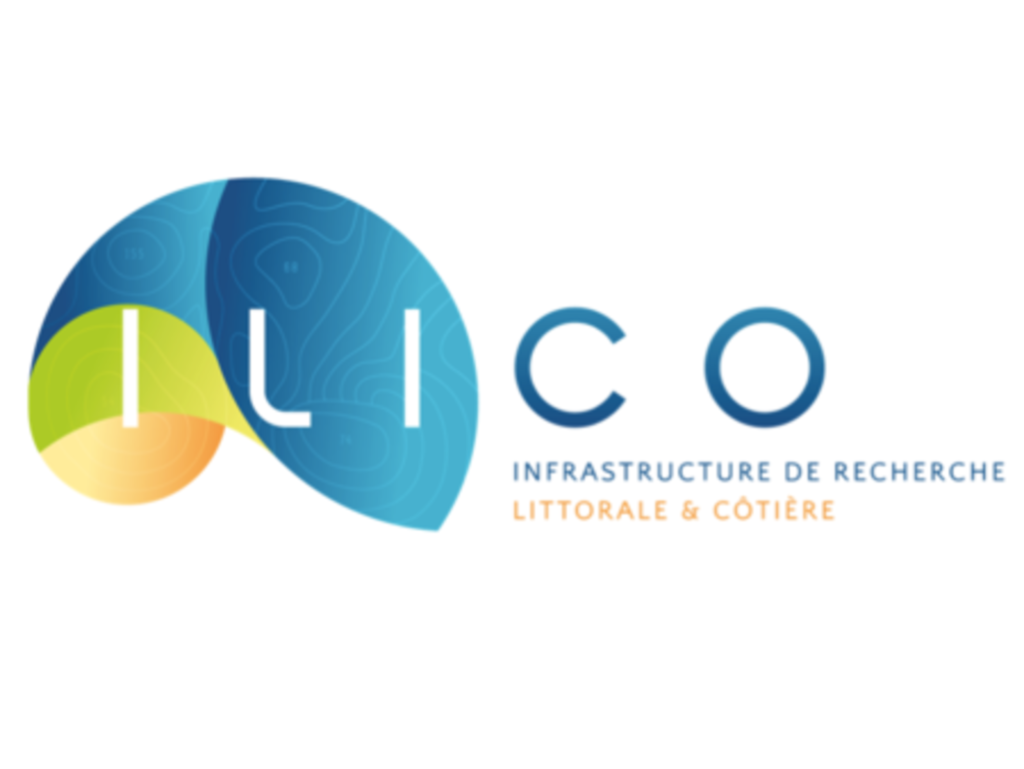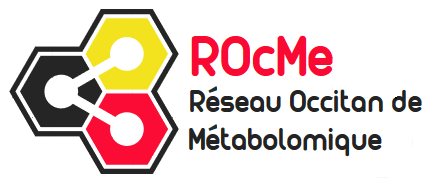Partners
Federative structures
The CORAIL LABEX “Coral reefs in the face of global planetary change” is a Laboratory of Excellence bringing together 9 Institutions and 4 Universities in Metropolitan France and Overseas France. It aims to study coral ecosystems with a view to improving their sustainable management. The objective is to eventually create a French Center of Excellence on Coral Reefs.
The Coral Reef Initiative for the South Pacific (CRISP) comprises some 50 projects in 17 Pacific Island countries. CRISP is engaging in a variety of activities with innovative implementation mechanisms that are producing a wide range of results and field data. CRISP’s aims are to i) develop a vision for the future of the region’s unique coral ecosys- tems and the communities that depend on them, and ii) intro- duce strategies and projects to conserve their biodiversity, while developing the economic and environmental services they provide, both locally and globally.
Networks
Created in 2016, the Littoral and Coastal Research Infrastructure (ILICO) aims to observe and understand coastal and marine environments and ecosystems as a whole. Thus, ILICO brings together a set of observations techniques to collect samples and deploy different measuring instruments by federating 8 observation services, called “elementary networks”, including the SNO CORAIL.
The Global Coral Reef Monitoring Network (GCRMN) is an operational network of the International Coral Reef Initiative (ICRI) aiming to provide the best available scientific information on the status and trends of coral reef ecosystems for their conservation and management. The GCRMN is a global network of scientists, managers and organizations that monitor the condition of coral reefs throughout the world, operating through 10 regional nodes.
Serge Planes represents CRIOBE there through the SNO CORAIL.
The Moorea’s SEE (Experimental Ecology Station) provides a set of operational platforms allowing in vivo and in situ experimentation on corals and the coral reefs in general. These platforms enable the manipulation of variables linked to environmental change to understand the processes of persistence of populations and biological stands and better understand the mechanisms of resistance and resilience to stressors.
The SEE is integrated within the CRIOBE’s platforms and can rely on the facilities of the Moorea research station, which include accommodations for 30 people, a scuba diving service, land vehicles, boats, and reception offices with internet and laboratory facilities equipped with basic equipment.
Annaïg Le Guen, director of CRIOBE, leads the RéNSEE in French Polynesia.
UPVD’s Federation of Energy and Environment Research aims to develop a scientific dynamic in-laboratory under the banner of interdisciplinarity at the interface between the fields of energy and the environment. The main themes include dynamics studies, health of ecosystems and biodiversity in the face of global changes, and the implementation of innovative processes to preserve them and ensure the sustainable development of our societies.
Benoît Pujol, CNRS-CRIOBE research director, co-directs FREE.
Metabolism analysis has grown considerably since the emergence of global approaches to characterize metabolic behavior at the scale of a cell, tissue or entire organism. Since 2005, the RFMF represents a key observatory for the structuring and evolution of this discipline in France and within the French-speaking community.
Cédric Bertrand, UPVD-CRIOBE professor, is a member of the Board of Directors of the RFMF.
The RocMe network promotes exchanges on the methodologies and techniques used in metabolomics, optimizes the services and means available in the territory in different scientific domains, attracts new actors and partners, and offers expertise to regional companies.
The Bio2Mar platform is part of the ROcMe network.

Recherche enseignement supérieur innovation pour la Polynésie
The Resipol (Recherche enseignement supérieur innovation pour la Polynésie) consortium is set up within a national framework aimed at establishing a coordinated territorial organization around a shared project defined by mutual agreement by state and country institutions and partners of the University of Berkeley, in order to support the development of French Polynesia through knowledge, training and innovation.
Annaïg Le Guen, director of CRIOBE, and Eric Clua, director of studies, respectively represent the CNRS and EPHE-PSL in this consortium.
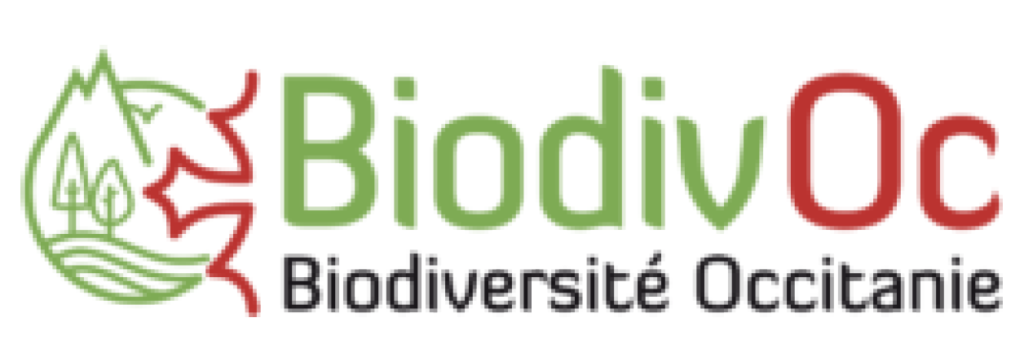
Biodiversité Occitanie
BiodivOc was launched by the Occitanie Region to support research in the Occitanie region of France, from local to international, according to a global approach, all species and ecosystems combined, combining observation, experimentation, theory and data analysis. Its ambition: to strengthen interdisciplinarity and links with actors in biodiversity management (including the private and associative sectors).
Benoît Pujol, CNRS-CRIOBE research director, co-directs this key challenge.
Collaborations
The CRIOBE laboratory works at the local, national, and international levels and collaborates with various institutions or scientific organizations as part of its research and research training activities.
National and international
- Agence française pour le Développement
- Agence Internationale de l’Energie Atomique
- AgroEcolgy INRA
- Division of Aquatic Resources, Kailua-Kona – Hawaii
- Fondation pour Recherche sur la Biodiversité
- Florida Museum of Natural History
- Museum of Tropical Queensland
- US National Park Service
- NOAA
- Office français de la Biodiversité
- Réserve Naturelle Marine de Cerbère-Banyuls
- US Department of Agriculture
Polynésie française
France mainland
- Centre National pour la Recherche Scientifique
- Centre National d’études spatiales
- ECOSEAS – Nice
- École des Hautes Études en Sciences Sociales
- École Pratique des Hautes Études
- École Supérieure de Physique et de Chimie Industrielles de Paris Tech
- IFREMER
- INSERM
- Institut de Chimie de Clermont-Ferrand
- Institut de Radioprotection et Sûreté Nucléaire
- Institut de Recherche pour le Développement
- Institut Océanographique de Monaco
- Laboratoire PHARMA-DEV
- Laboratoire ECOMAR
- Laboratoire LIVE
- Laboratoire de Morphologie Fonctionnelle et Evolutive
- Laboratoire d’Écogéochimie des Environnements Benthiques – Banyuls
- Laboratoire Microorganismes : Génome et Environnement
- Laboratoire d’océanographie microbienne
- Museum National d’Histoire Naturelle
- Université Côte d’Azur
- Université de Montpellier
- Université de Perpignan Via Domitia
French overseas departments and territories
- Institut Louis Malardé
- UMR BOREA-DYNECAR
- UMR EIO
- UMR ENTROPIE
- Université de la Polynésie française
- Université de La Réunion
- Université de Nouvelle-Calédonie
- Université des Antilles
Pacific-Oceania
- ARC Centre of Excellence for Coral Reef Studies
- Australian Institute of Marine Sciences
- Centre for Marine Science
- Global Change Institute
- Great Barrier Reef Marine Park Authority
- Queensland University
- Université de Guam
- Université James Cook
- Université Macquarie
- Université de Melbourne
- University of South Pacific
- MADIN-LAB
- Pacific Cooperative Studies Unit
- Hawaii Institute of Marine Biology
- Okinawa Institute of Science and Technology Graduate University
- Université des Ryūkyū
Northern America
- Station Gump – Moorea
- Scripps Institution of Oceanography
- Smithsonian Conservation Biology Institute
- Université de Californie – Berkeley
- Université de Californie – San Diego
- Université de Californie – Santa Barbara
- Bren School of Environmental Science and Management
- Université de Californie – Santa Cruz
- Université du Delaware
- Université de Hawaii
- Université de Floride du Sud
- Université Internationale de Floride
- Université du Maine
- Université de Pennsylvanie
- Université de Rhode Island
- Université de San Diego
- Université Nationale Autonome du Mexique
- Université Simon Fraser
Europe
- Université d’Aberdeen
- Université de Bangor
- Université de Bristol
- Université d’Exeter
- Université de Glasgow
- Université de Gérone
- Université de Gothenburg
- Université Nationale d’Irlande
- Université de Leyde
- Université de Liège
- Université d’Urbino Carlo Bo
- Centro Interuniversitario di Biologia Marina “G.Bacci”
- Politecnico di Milano – Dipartimento di Elettronica, Informazione e Bioingegneria
- Max Planck Institute for Marine Microbiology
- Leibniz Center for Tropical Marine Ecology
- Institut Thünen
Africa
Polynesian Private Partners
- Air Tahiti Nui
- Bora Bora Activities
- C2O Consulting
- CREOCEAN
- Dive’n smile
- Europcar Polynésie
- Espace Bleu
- Fenua Environnement
- Fenua Ma
- Intercontinental Resort & Spa
- ISI.PF
- Lagant Prod
- La Polynésienne des Eaux
- Office des Postes et Télécommunications
- Robert WAN
- Tahiti Bio Roche
- Tahiti Fa’ahotu
- Tetiaroa Society
French Metropolitan Private Partners
- Association Pelagio-Kakunja
- Association « Clipperton – Projets d’Outre-Mer »
- Comité du tourisme de Bora Bora
- Ecopath International Initiative
- Expéditions Under The Pole
- Fondation Grenoble INP
- Groupe d’Étude des Mammifères Marins
- Fondation Malpélo
- Ia Vai Ma Noa Bora Bora
- Institut de Biomimétisme polynésien
- Association Kap Natirel
- Les Naturalistes de Mayotte
- Mata Tohora
- Manta Trust
- Observatoire des Requins de Polynésie
- Oceania
- Proscience
- Puna Reo
- Research Association
- Tara Océan
- Te Mana O Te Moana
- Te Manu
- The Nature Conservancy
- WWF
- Agence Nationale pour la Recherche
- Agence de l’Eau – Rhône Méditerranée Corse
- BEST initiative Europe
- Bloomberg Philantropies – Vibrant Ocean Initiative
- Centre National d’Etudes Spatiales
- CIFRE – Ministère de l’Enseignement supérieur, de la
- Recherche et de l’Innovation
- Contrat de projet Etat-Pays (FR-PF)
- EMBRC France
- European Research Council
- Marie Skłodowska-Curie Actions
- Fonds Européen de Développement Régional
- Fondation BNP Paribas
- Fondation de France
- Fondation pour la Recherche sur la Biodiversité
- Fondation Prince Albert II
- Fondation TOTAL
- Ministère de l’Outre-Mer
- Ministère de la Transition Ecologique et Solidaire
- Ministère du Tourisme – Tahiti
- PEPS CNRS-INEE ECOMOB
- Terres australes et antarctiques françaises
- Union Européenne
- United Nations Environment Programme
- VULCAN – G. Allen Fondation
- American Samoa Dept. Marine & Wildlife Resources – American Samoa
- Fisheries division of Tonga – Tonga
- Marine Ecology Consulting – Fiji
- Ministry of Agriculture and Fisheries – Samoa
- Ministry of Fisheries and Marines resources – Kiribati
- Ministry of Marine Resources – Îles Cook
- Pitcairn natural resources division – Pitcairn
- Palau International Coral Reef Center – Palau
- Marshall Islands Marine Resources Authority – Marshall Islands
